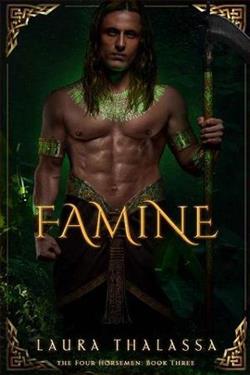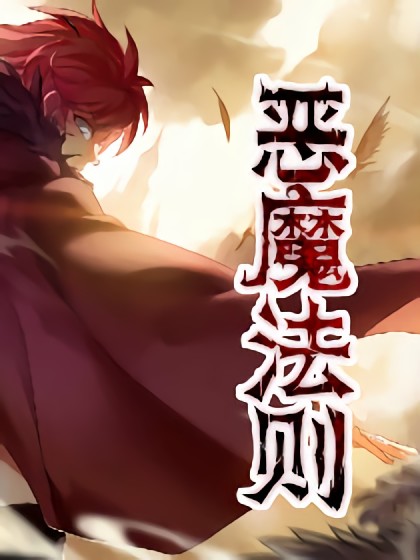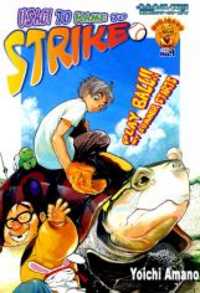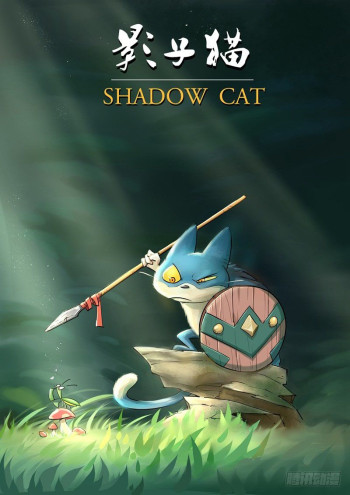
Famine
by Laura Thalassa
They came to earth—Pestilence, War, Famine, Death—four horsemen riding their screaming steeds, racing to the corners of the world. Four horsemen with the power to destroy all of humanity. They came to earth, and they came to end us all.
Ana da Silva always assumed she’d die young, she just never expected it to be at the hands of Famine, the haunting immortal who once spared her life so many years ago. But if the horseman remembers her at all, he must not care, for when she comes face to face with him for the second time in her life, she’s stabbed and left for dead.
Only, she doesn’t quite die.
If there’s one thing Famine is good at, it’s cruelty. And how these blighted bastards deserve it. Try as he might, he can’t forget what they once did to him. But when Ana, a ghost from his past, corners him and promises pain for what he so recently did to her, she and her empty threats captivate him, and he decides to keep her around.
In spite of themselves, Ana and Famine are drawn to each other. But at the end of the day, the two are enemies. Nothing changes that. Not one kind act, not two. And definitely not a few steamy nights. But enemies or reluctant lovers, if they don’t stop themselves soon, heaven will.
.
Read
Famine on http://kissnovel.net
Martial Peak Reviews
Laura Thalassa's Famine, the third installment in her Four Horsemen series, continues to explore the apocalyptic narrative with a unique blend of romance, fantasy, and moral complexity. The book delves into the story of Ana da Silva and the horseman Famine, weaving a tale that is as much about personal redemption as it is about the larger fate of humanity.
The premise of the series—four horsemen descending upon Earth to bring about its end—provides a rich backdrop for exploring themes of destruction and salvation. In Famine, Thalassa takes a closer look at the horseman who embodies scarcity and deprivation. Famine is portrayed as a figure of both terror and allure, a being whose very presence signifies suffering but who also possesses a depth that makes him more than just a harbinger of doom.
Ana da Silva, the protagonist, is a compelling character who embodies resilience and defiance. Her initial encounter with Famine, where she is left for dead, sets the stage for a complex relationship that challenges the boundaries between love and enmity. Ana's survival and subsequent confrontation with Famine highlight her indomitable spirit, making her a character that readers can root for. Her journey is not just about survival but also about confronting her own fears and prejudices.
Thalassa's portrayal of Famine is particularly noteworthy. He is not merely a villain but a character with a past that informs his actions. The narrative delves into his history, revealing the reasons behind his cruelty and his disdain for humanity. This exploration of Famine's character adds layers to the story, making him a more relatable and tragic figure. The dynamic between Ana and Famine is fraught with tension, as they are drawn to each other despite their roles as adversaries. This tension is skillfully maintained throughout the book, keeping readers engaged and invested in their evolving relationship.
The themes of redemption and forgiveness are central to Famine. Both Ana and Famine are characters seeking redemption in their own ways. Ana's journey is about forgiving herself and others, while Famine's path is about understanding and overcoming his own bitterness. Their relationship serves as a microcosm of these larger themes, illustrating how love and understanding can bridge even the deepest divides.
Thalassa's writing is evocative, capturing the bleakness of a world on the brink of collapse while also highlighting moments of beauty and hope. Her descriptions of the desolate landscapes and the suffering of humanity are vivid and haunting, creating a stark contrast with the moments of tenderness between Ana and Famine. This juxtaposition enhances the emotional impact of the story, making the reader acutely aware of what is at stake.
In comparison to other works in the genre, Famine stands out for its focus on character development and emotional depth. While many apocalyptic narratives prioritize action and spectacle, Thalassa's series is more introspective, exploring the psychological and emotional ramifications of the end times. This approach is reminiscent of works like Susan Ee's Angelfall series, which also combines romance with an apocalyptic setting, but Thalassa's focus on the horsemen as central characters adds a unique twist to the genre.
One of the strengths of Famine is its ability to balance the fantastical elements with real-world issues. The theme of scarcity and the impact of famine are particularly relevant in today's world, where issues of food security and inequality are pressing concerns. Thalassa uses the character of Famine to explore these themes, making the story not only entertaining but also thought-provoking.
Overall, Famine is a compelling addition to the Four Horsemen series. It offers a nuanced exploration of complex themes, memorable characters, and a romance that is both passionate and poignant. Thalassa's ability to blend fantasy with emotional depth makes this book a standout in the genre. Readers who enjoy stories that challenge the boundaries between good and evil, love and hate, will find much to appreciate in Famine.
For those interested in exploring this captivating tale, you can find Famine on Goodreads for more reviews and insights.
























Reviews 0
Post a Reviews: